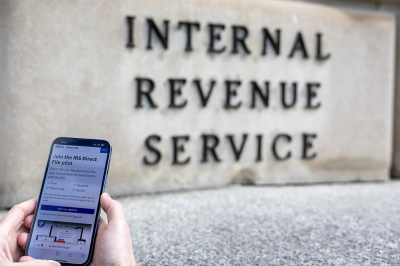
The IRS confirmed on Monday that pastors who endorse political candidates from the pulpit or through their church communications will not lose their tax-exempt status. In a rule change that highlights their stance on churches and pastors, this decision is a long-overdue carve-out from the Johnson Amendment, the 1954 rule that has long prevented churches from engaging in electoral endorsements.
That shift is massive and should matter deeply to every American Christian.
For me, this issue is personal. Dr. Robert Jeffress, Pastor of First Baptist Dallas, recently highlighted my story again in a national message. My journey with the Internal Revenue Service began years ago at the humble start of Christians Engaged, the ministry I founded in Texas. We submitted our application in December 2019 for 501c3 status. The IRS denied us after 18 months.
Why were we rejected? We offered biblically grounded voter education, guided by Scripture on the sanctity of human life, traditional marriage between one man and one woman, biblical justice, and other issues. They denied us our tax-exempt status because, in their words, “[B]ible teachings are typically affiliated with the [Republican] party and candidates. This disqualifies you from exemption under IRC Section 501(c)(3).”
It was mind-blowing for us, but we knew that if we didn’t fight back, it could impact every church or ministry in the nation. As a ministry, we were simply asking believers to engage their faith and their civic duty, praying for wisdom and involvement.
I had run for Congress in 2018 as a Republican, but Christians Engaged was never about campaigning. We sought to activate believers to pray, vote, and engage on behalf of our nation regardless of political affiliation.
With the help of First Liberty Institute, we appealed. In July 2021, the IRS reversed its decision, granting our tax-exempt status and acknowledging that our focus on scriptural issues that some said were “political” was constitutionally sound. It was a victory, not just for us but for any religious nonprofit that seeks to inform Americans and help Christians make wise decisions.
In the new IRS ruling released this week, the agency is not repealing the Johnson Amendment entirely. Instead, it states that the Johnson Amendment will not apply when messages are delivered in the context of a house of worship, with religious services or church communications. Pastors have always had the right to pray, vote, and engage — our motto — but now they will also have the freedom to endorse candidates if they choose to do so.
The Johnson Amendment has been a paper tiger for years. No church has lost its tax-exempt status, though the IRS has created costly issues for many churches. Pastors who want to actively engage in changing their communities by endorsing candidates from their pulpit, joining with other churches to elect Christians, and communicating their choices to their members can now do so without fear of losing tax-exempt status.
Some critics will warn that this change could turn congregations into campaign destinations. Yet this is not about churches acting as super PACs. It’s about restoring free speech and First Amendment integrity for religious organizations and church leaders.
Also, nothing in this carve-out requires churches to endorse candidates or discuss politics. They remain free to focus on worship and service only if that is what they desire. But if they choose to engage their congregations on biblical issues that might be seen in our culture as political, or candidates, they can do so without fear of legal punishment.
What does that mean for everyday Americans? It means you can expect more open discussions of civic responsibility from faith leaders. As someone whose own nonprofit was nearly silenced, I know how difficult it can be to navigate prayerful engagement and legal boundaries. This decision eases that tension, inviting a more authentic conversation in homes, churches, and communities.
But the work isn’t complete. Congress still must act to formally repeal or amend the Johnson Amendment. The IRS action stems from a lawsuit in Texas, in which some of our ministry partners, such as Sand Springs Church in Athens, joined by the National Religious Broadcasters Association, Intercessors for America, and others, are seeking judicial recognition of this exemption. Full reform requires congressional action.
As for me, I look back on our IRS ordeal with gratitude. When the agency reversed itself in 2021, it affirmed that faith-rooted political engagement isn’t a partisan affront; it’s part of being a citizen who loves God and neighbors. This new IRS filing extends that principle from our small nonprofit to pulpits across America.
It is now up to our church leaders and congregants to turn this new blessing into a movement to speak God’s truth boldly, sharing His good news with every person and on every issue without fear of government interference.
Bunni Pounds is the Founder and President of Christians Engaged as well as the Senior Vice President for Family Policy Alliance and Family Policy Alliance Foundation, founded by Dr. James Dobson. BunniPounds.com

















